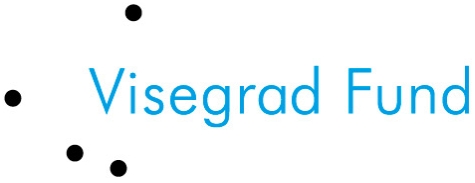On September 12, 2012, the Institute for Pubic Affairs (IVO) organized an international conference titled "Alternative Politics? The rise of new political formations in Central Europe: reasons, factors, impact" The conference was part of the Institute’s project running under the same title.
The aim of the conference was to analyze the reasons, factors and impact of the emergence and success of those new political parties, which succeeded in the Visegrad Group countries’ parliamentary elections and became an integral part of their parliamentary systems.
The event was launched by a series of contributions from Karla Wursterová, executive director of the International Visegrad Fund and Martin Bútora, honorary president of the Institute for Public Affairs.
First part of the conference was dedicated to party politics in Poland, Hungary and the Czech Republic. Marcin Waszak, from the Institute of Public Affairs (ISP) in Warsaw, contributed with a lecture on ‘Anti-politics as a prescription for the electoral success in Poland? The case of Palikot’s Movement’; where he introduced the reasons that lie behind the emergence of this movement and its performance (10%) in the 2011 Polish national elections. Andras Biro-Nagy from the Hungarian Academy of Sciences, in his lecture ‘New parties in the new Hungarian party system’, focused on the right-wing party Jobbik and the Politics Can Be Different (LMP) movement; their values and the analysis of their voter base. Peter Spáč from the Masaryk University in Brno presented a lecture on ‘New political parties in Czech Republic: anti-politics or mainstream?,’ devoted to election campaigns, voter support and the style of politics of TOP09 and VV parties.
In the second part of the conference, moderated by Martin Butora, analysts of the Institute for Public Affairs shifted attention to the situation in Slovakia. The Institute’s president, Grigorij Meseznikov, analyzed in his contribution ‘Alternative Politics and New Parties in Slovakia’ the parliamentary election results of new political parties since 1994, particularly SaS, Most-Hid and OLaNO. Zora Butorova and Olga Gyarfasova gave a presentation on ‘Socio-cultural characteristics of new parties supporters in Slovakia’ discussing values of voters supporting new parties by drawing from sociological surveys. They also touched upon topics of preferential voting, election campaigns and socio-demographic profile of new parties voter bases.
The conference saw the attendance of diplomats, experts, students and news reporters. The Institute for Public Affairs is preparing a publication that will emanate from the conference.
The project is supported by the International Visegrad Fund.
Download:
G. Mesežnikov: “Alternative Politics” and New Parties in Slovakia
A. Bíró-Nagy: New parties in the new Hungarian party system
P. Spáč: New political parties in Czech Republic: anti-politics or mainstream?
M. Waszak: Anti-politics as a prescription for the electoral success in Poland?
O. Gyárfášová, Z. Bútorová: Socio-cultural characteristics of new parties
supporters in Slovakia
Conference program
Program konferencie (in Slovak)
Oľga Gyárfášová: Tekuté alternatívy (article in Slovak)
PHOTOS

First part of the conference (left to right): Marcin Waszak, Grigorij Mesežnikov (chair) András Bíró-Nagy, Peter Spáč

Second part of the conference: Oľga Gyárfášová, Martin Bútora, Zora Bútorová a Grigorij Mesežnikov

A view of the auditorium.
Project is supported by:
